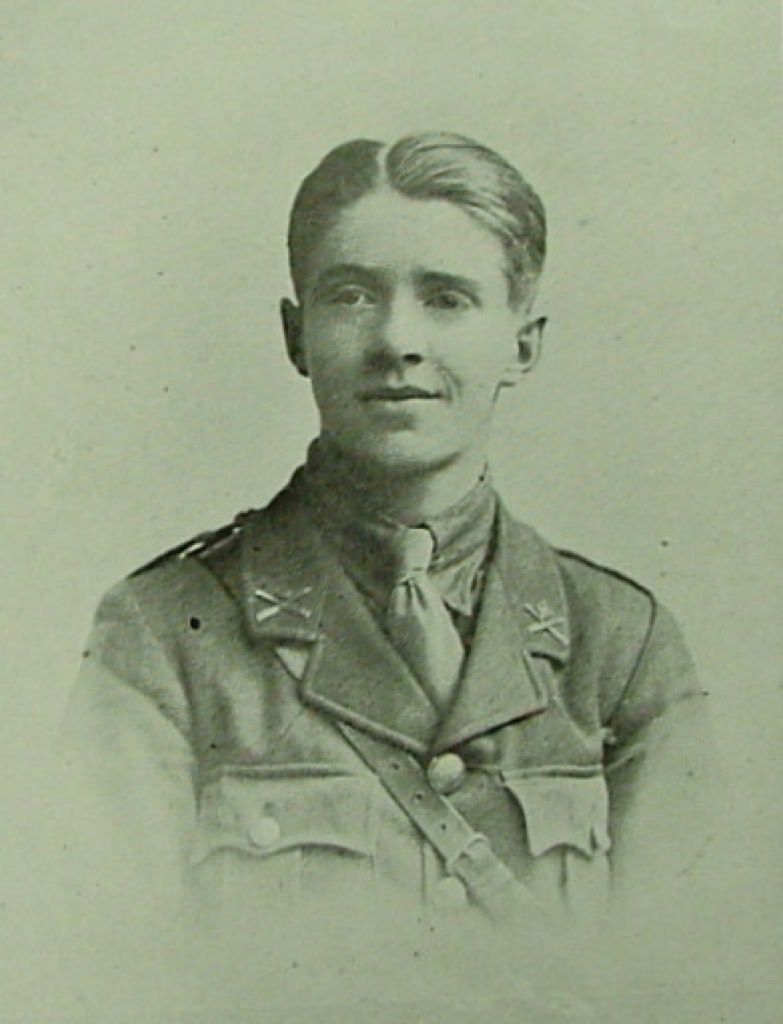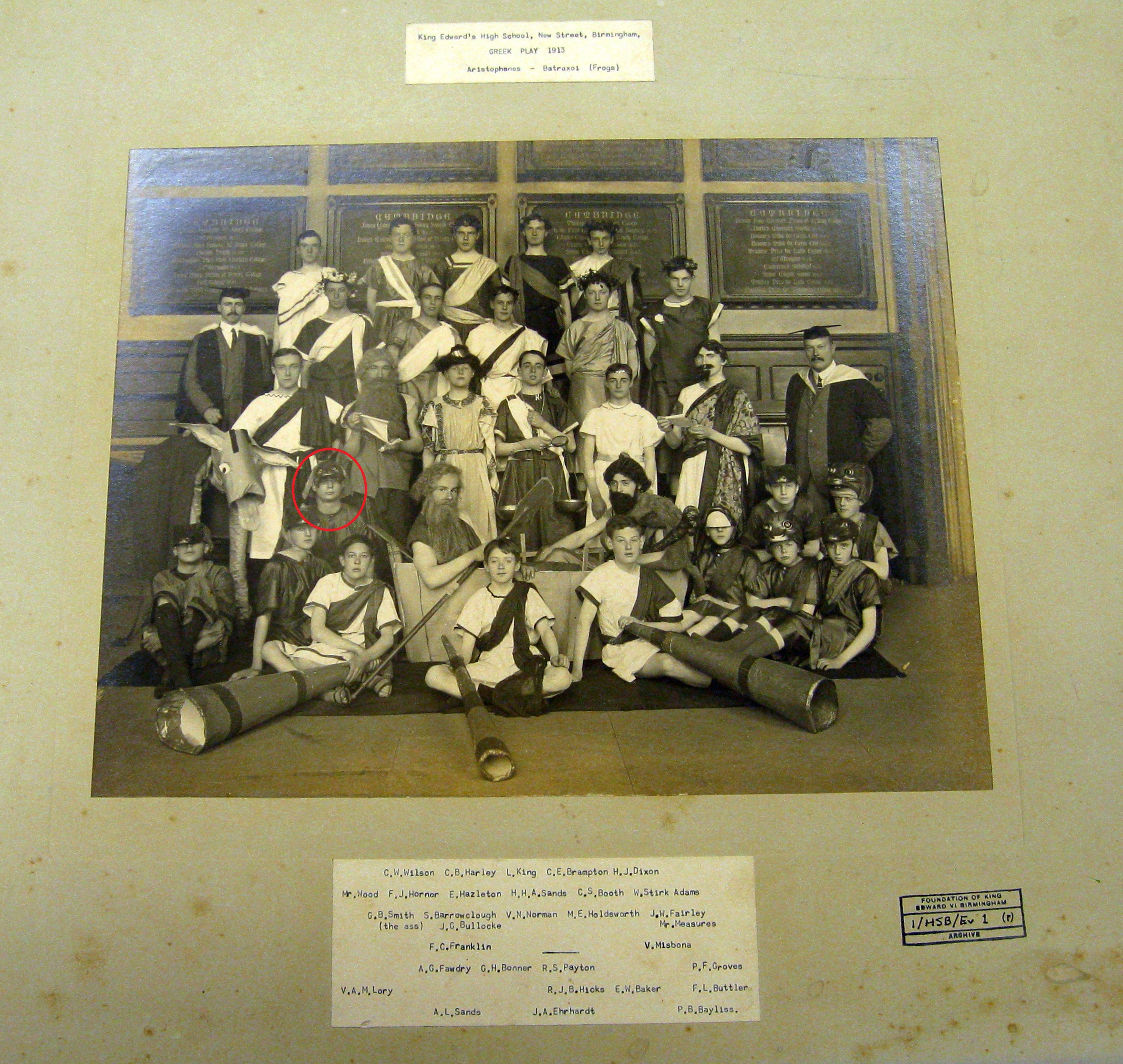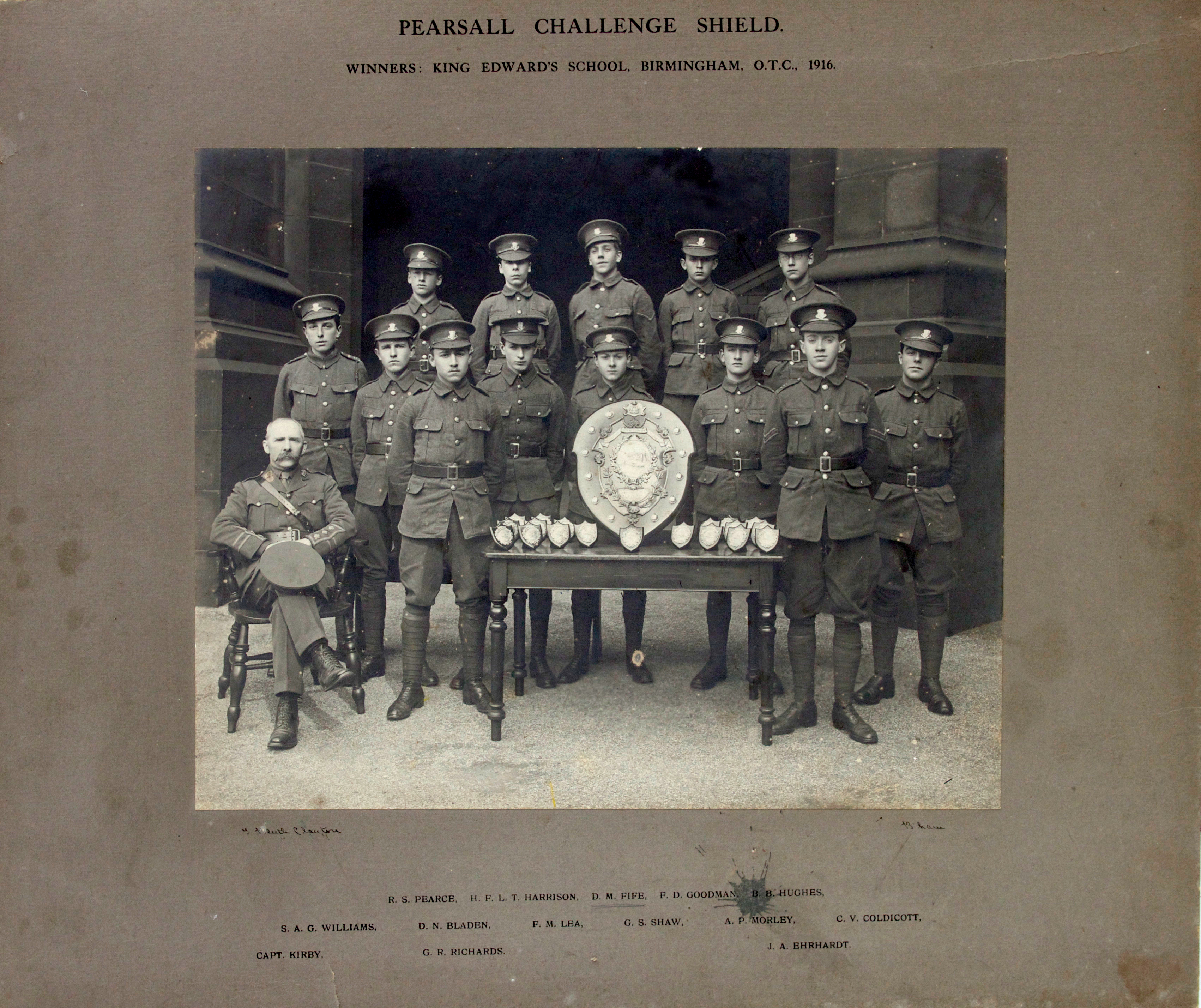John Albert ‘Ginger’ Ehrhardt, born on 20th February 1898, was admitted to King Edward’s School in January 1911, having been educated at Mr Catty’s English School in Heidelberg until he was twelve. He was the son of Dr and Mrs Ernest Ehrhardt. Dr Ehrhardt was a research chemist operating in Merseyside, but was kept under house arrest during the war because of his ancestry and his involvement with the German chemical industry. John had three brothers, all of whom attended King Edward’s School: William, the oldest, died in 1923 of the wounds he received serving with the 1st Birmingham Pals Battalion and another brother, Herbert, survived the sinking of the Lusitania.
At School, John was a wholehearted sportsman. He was captain of his House shooting team, won rugby colours, excelled as a swimmer and gymnast, and was a keen officer in the School Officer Training Corps. An obituary in Liverpool’s Scroll of Fame describes John’s “cheerfulness and keenness [as a schoolboy] as outstanding qualities, which served him so well as a soldier on his country’s battlefields.” During his time at School, John, along with his brother William and seven other boys, were boarding with Mr Hume, a KES schoolmaster.
In 1916, John left School to join the Cadet Corps at Oxford, and was later commissioned to the Tank Corps as a Second Lieutenant, undergoing a period of training at Bovington. He was spotted as the type of resourceful and spirited lad who could make the most of these new offensive weapons and ideas. Going over to France in March 1917, he was attached to the 1st Battalion Tank Corps as a Reconnaissance Officer, in time for the Battle of Cambrai. A year later, during the German Spring Offensive, John was fighting on foot near Bray with a Lewis gun, with which he helped repulse the enemy’s attack. Following a wound in the thigh, John fought on until he was struck in the lung by a machine-gun bullet. He died “without a murmur” in the arms of his superior, Captain Hunnikin, who wrote of him: “I cannot do justice to Jack unless I tell you of his generous and brave conduct out here. You may rest assured that he has been very instrumental in ridding this world of very many of the enemy.” John’s Colonel remarked that the army had lost a very clever and gallant young officer, whose selfless death was an inspiration. John died aged twenty, and is commemorated on the Pozières Memorial, France.




